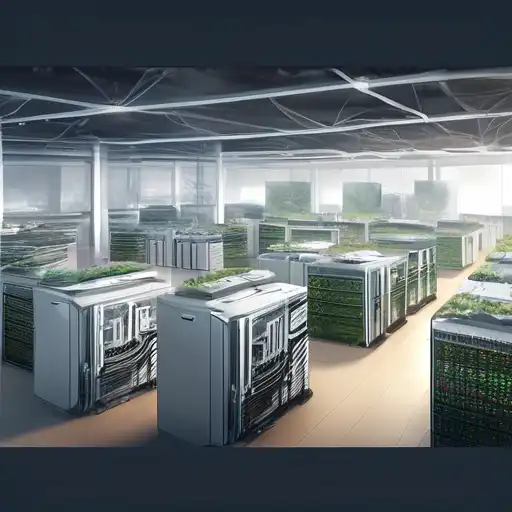Introduction to Sustainable Hardware in Tech
In today's rapidly evolving tech landscape, sustainability has become a cornerstone for innovation. Tech companies are increasingly turning towards sustainable hardware solutions to reduce environmental impact while maintaining high performance. This shift not only addresses the growing demand for eco-friendly products but also aligns with global sustainability goals.
Why Sustainable Hardware Matters
The tech industry is notorious for its significant carbon footprint, largely due to the production and disposal of hardware. Sustainable hardware solutions offer a way to mitigate this impact by focusing on energy efficiency, recyclability, and longer life cycles. These practices not only benefit the planet but also offer cost savings and brand enhancement opportunities for businesses.
Key Sustainable Hardware Innovations
Several innovations are leading the way in sustainable hardware for tech companies. Here are some of the most impactful:
- Energy-Efficient Processors: New generations of processors are designed to deliver high performance with lower energy consumption.
- Modular Design: Hardware with modular components allows for easy upgrades and repairs, extending the device's lifespan.
- Recycled Materials: Companies are increasingly using recycled plastics and metals in their products to reduce waste.
- Biodegradable Components: Research into biodegradable electronics promises a future where tech waste can decompose naturally.
Implementing Sustainable Practices in Your Business
Adopting sustainable hardware solutions requires a strategic approach. Start by assessing your current hardware's environmental impact and identify areas for improvement. Partnering with suppliers who prioritize sustainability and investing in energy-efficient technologies are effective first steps. Additionally, educating your team and customers about the benefits of sustainable hardware can amplify your impact.
Case Studies: Success Stories in Sustainable Hardware
Several tech giants have successfully integrated sustainable hardware solutions into their operations. For example, a leading smartphone manufacturer has reduced its carbon footprint by using recycled materials in its devices. Another company has developed a fully recyclable laptop, setting a new standard for the industry. These examples demonstrate the feasibility and benefits of sustainable hardware innovations.
Looking Ahead: The Future of Sustainable Hardware
The future of sustainable hardware is bright, with ongoing advancements in materials science and manufacturing processes. As consumer awareness and regulatory pressures increase, tech companies will continue to innovate in this space. The transition to sustainable hardware is not just an environmental imperative but a competitive advantage in the modern tech industry.
For more insights into sustainable technology trends, explore our technology trends section.
